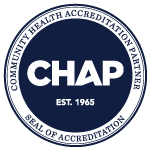The loss from a suicide is a different type of grief.
“When you lose somebody you love, there is obviously an enormous amount of grief. When that grief is associated with a choice that a loved one has made, that adds levels of complexity to it that is hard for me to really quantify or explain,” said Karen Hopkins, a Rye High School teacher who lost her daughter to suicide two years ago.
“The guilt. The sadness. Obviously, when you have a suicide loss, it’s not something that you have the opportunity to prepare for. She wasn’t sick before that. There wasn’t anything that would allow us to start that process before we lost her.”
Hopkins’ daughter, Maggie Peters, was only 15 years old when she committed suicide on Nov. 16, 2015.
“She was going to get her driver’s license in two weeks. Her birthday was just a couple of weeks after we lost her,” Hopkins said fighting tears.
“There are a lot of aspects to a life cut short because the individual has made an irreversible mistake and that grief is a very difficult grief,” Hopkins said.
In an effort to help herself, her husband, her surviving daughter and some of Maggie’s friends cope with the sudden loss, she said she reached out to the Pueblo Suicide Prevention Center and learned that it had closed.
Hopkins said the closest resource she could find was an hour-and-a-half drive away in Colorado Springs.
She pursued a number of other bereavement options for grief support, including reaching out to longtime friend and Sangre de Cristo Hospice and Palliative Care CEO, Tarrah Schreiner.
“She had mentioned that hospice had a grief counselor and that perhaps they could help. We lost Maggie on a Monday and a week later, I met Crystal (Gerlock), who is a grief counselor at hospice,” she said.
While hospice providers are highly skilled in bereavement and providing the necessary emotional and spiritual support, this situation was different.
Help soon would come thanks to a $10,000 donation from the Coors Foundation. The funds are helping Sangre de Cristo Hospice enhance its ability to support people impacted by the death of someone to suicide, expanding Southern Colorado’s access to valuable suicide grief resources and support.
Two of the organization’s social workers — including Gerlock — recently completed 150 hours of comprehensive training and now are certified in Death and Grief Studies by the Center for Loss and Life Transition.
“It’s huge for our agency. It better equips them to handle different types of griefs,” Schreiner said.
“When Karen’s heart was broken, our community was broken. And we all wanted to help,” she added with tears.
In the United States alone, nearly 40,000 people a year die by suicide. Each of these tragic events leaves behind an estimated six or more “suicide survivors” — people who have lost someone they care about deeply and are left grieving and struggling to understand.
Gerlock said people coping with this kind of loss often need more support than others.
“There’s a lot attached to suicide grief. There’s confusion. There’s guilt. There’s anger and there’s a lot of unanswered questions that oftentimes go with the person that passes away,” Gerlock said.
Gerlock said the training will help on the path to healing and she hopes more staff will soon be trained.
Hopkins dabbed at tears as she talked about Maggie. She was holding a picture of her daughter.
“All grief is difficult, but it (suicide) has its own unique types of difficulties when you are trying to survive the loss of a suicide,” Hopkins said.
“As you can see, the grief does not go away. The sadness does not go away. The devastation to my family does not go away. I am so excited and so pleased and impressed and grateful to hospice staff for working on this grant, for getting this grant, for taking advantage of the resources offered by this grant to be prepared to help survivors of suicide loss.”
People in need of this service can call 542-0032.


